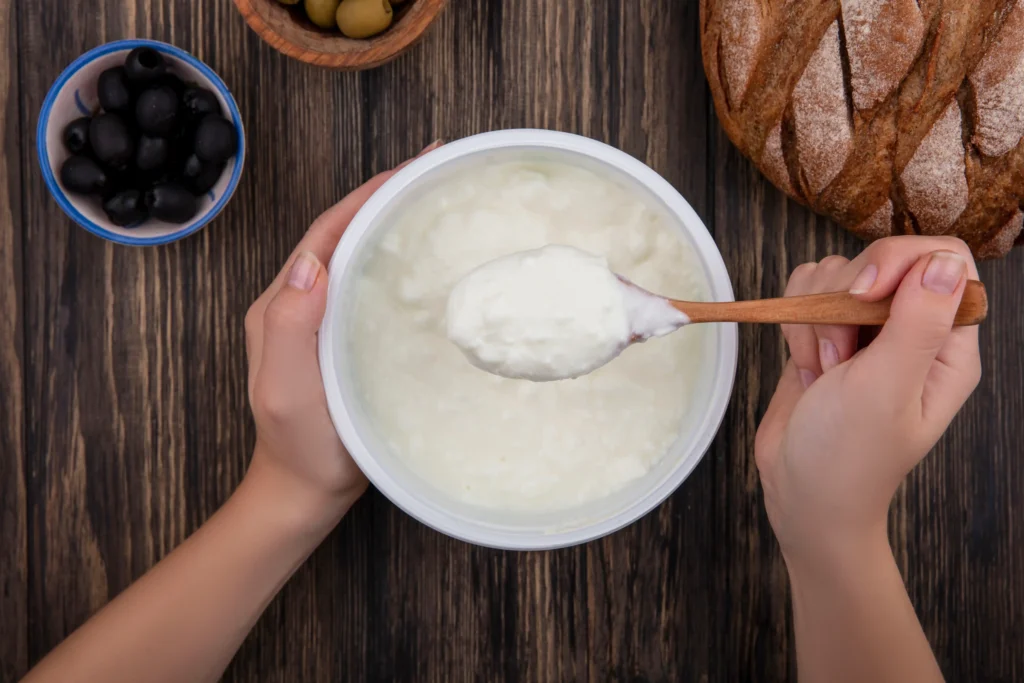Curd is Good for Piles - Benefits, Tips, and Dietary Advice
Piles, also known as hemorrhoids, can cause discomfort, pain, and even bleeding. Dietary changes play a crucial role in managing piles, and curd, a common probiotic-rich food, has shown potential benefits for easing symptoms. This blog will explore why curd is good for piles, how it aids digestion, and tips for including it in your diet.
Why Curd is Good for Piles
Curd is a versatile food that supports gut health. Packed with beneficial bacteria, it aids digestion, helps in softening stool, and improves bowel movements—key factors in managing piles. Consuming curd regularly may reduce the inflammation and irritation associated with piles, offering a natural remedy for those struggling with this condition.

Benefits of Curd for Piles
1. Promotes Digestive Health
One of the primary reasons curd is good for piles is its role in promoting healthy digestion. Curd contains probiotics, which are live beneficial bacteria that support the gut. These probiotics enhance nutrient absorption and maintain the gut’s natural balance, reducing the risk of constipation, a common trigger for piles.
2. Softens Stool
Curd helps soften the stool, making it easier to pass without straining. Straining is a leading cause of piles as it puts pressure on the veins in the rectum. Regularly consuming curd may help in reducing this strain, preventing piles from worsening.
3. Reduces Inflammation
Curd contains anti-inflammatory properties that can reduce the inflammation associated with piles. By calming the digestive tract, curd helps alleviate pain and irritation, making it an effective dietary addition for piles patients.
4. Prevents Constipation
One of the main benefits of curd for piles is its effectiveness in preventing constipation. Regular bowel movements are crucial for piles management, and curd’s probiotics support this by improving gut motility.
5. Enhances Immune Health
A healthy immune system is essential for managing chronic conditions like piles. Curd contains nutrients like vitamin B12, calcium, and protein, which can strengthen the immune system, aiding in faster recovery and better management of piles symptoms.
How to Include Curd in Your Diet for Piles Relief
1. Plain Curd
Eating plain curd with meals is a simple way to benefit from its digestive properties. Try adding a serving of curd to your lunch or dinner to support digestion and reduce the risk of constipation.
2. Curd with Fiber-Rich Foods
Combining curd with fiber-rich foods like oats, brown rice, or vegetables can enhance its benefits for piles. Fiber and probiotics work together to support healthy bowel movements and reduce the chances of constipation.
- Oats and Curd: A bowl of oats mixed with curd is both nutritious and easy on the stomach.
- Curd with Salads: Use curd as a dressing for salads to add probiotics without high-fat dressings.
3. Buttermilk
Buttermilk, made from curd, is also good for piles. It is lighter on the stomach, contains similar probiotics, and can be consumed daily for digestive support.
4. Curd Smoothies
Blending curd into smoothies with fruits like bananas or berries makes a delicious and fiber-rich snack. This combination provides a balance of fiber and probiotics, helping to keep digestion smooth and preventing straining during bowel movements.
5. Curd with Cumin and Coriander
Adding spices like cumin or coriander to curd can enhance its digestive benefits. Cumin and coriander are known for their ability to aid digestion, reduce bloating, and improve gut health.
Tips for Consuming Curd with Piles
- Avoid Flavored or Sweetened Curd: Sweetened or flavored curd often contains additives and sugars that may aggravate digestive issues. Stick to plain, natural curd for the best results.
- Moderation is Key: While curd is beneficial, excessive consumption may lead to bloating or gas. Stick to one or two servings daily to maintain a healthy balance.
- Pair with High-Fiber Foods: Pairing curd with fiber-rich foods ensures smoother digestion and adds bulk to the stool, reducing strain.
- Opt for Fresh Curd: Fresh curd contains the highest levels of beneficial bacteria. Homemade curd is a great option, as it is free from preservatives.
Other Dietary Tips for Managing Piles
While curd is good for piles, maintaining a balanced diet with other fiber-rich and anti-inflammatory foods is essential for comprehensive management. Here are a few recommendations:
1. Increase Fiber Intake
Fiber-rich foods like whole grains, fruits, and vegetables add bulk to the stool and make it easier to pass, which is crucial for reducing piles symptoms. Foods like oats, lentils, beans, and leafy greens are excellent choices.
2. Stay Hydrated
Water is essential for the digestive process, especially when consuming fiber. Drinking at least 8 glasses of water daily can prevent constipation and soften stools, making bowel movements more comfortable.
3. Limit Spicy Foods
Spicy foods may irritate the digestive tract, potentially worsening piles symptoms. Try to limit spices and hot ingredients in your meals.
4. Avoid Processed Foods
Processed foods lack fiber and may contribute to constipation. They often contain preservatives, salt, and unhealthy fats, which can increase discomfort related to piles.
When to Avoid Curd for Piles
While curd is generally good for piles, some individuals may need to limit their consumption:
- If You Have Lactose Intolerance: People with lactose intolerance may experience bloating or gas after consuming curd, which could worsen piles symptoms.
- During Cold Weather: In some cases, curd may feel too cooling on the digestive system during colder months. Listen to your body and adjust intake if needed.
Conclusion
Incorporating curd into your daily diet can be a natural way to manage piles, thanks to its probiotic content and digestion-friendly properties. By consuming curd alongside fiber-rich foods, staying hydrated, and maintaining a balanced diet, you can relieve piles symptoms and improve your digestive health. Remember, moderation and consistency are key, and always consult a healthcare professional before making major dietary changes. For more personalized dietary advice on managing piles, visit Dr. Sushma Peruri Surgery Clinic


